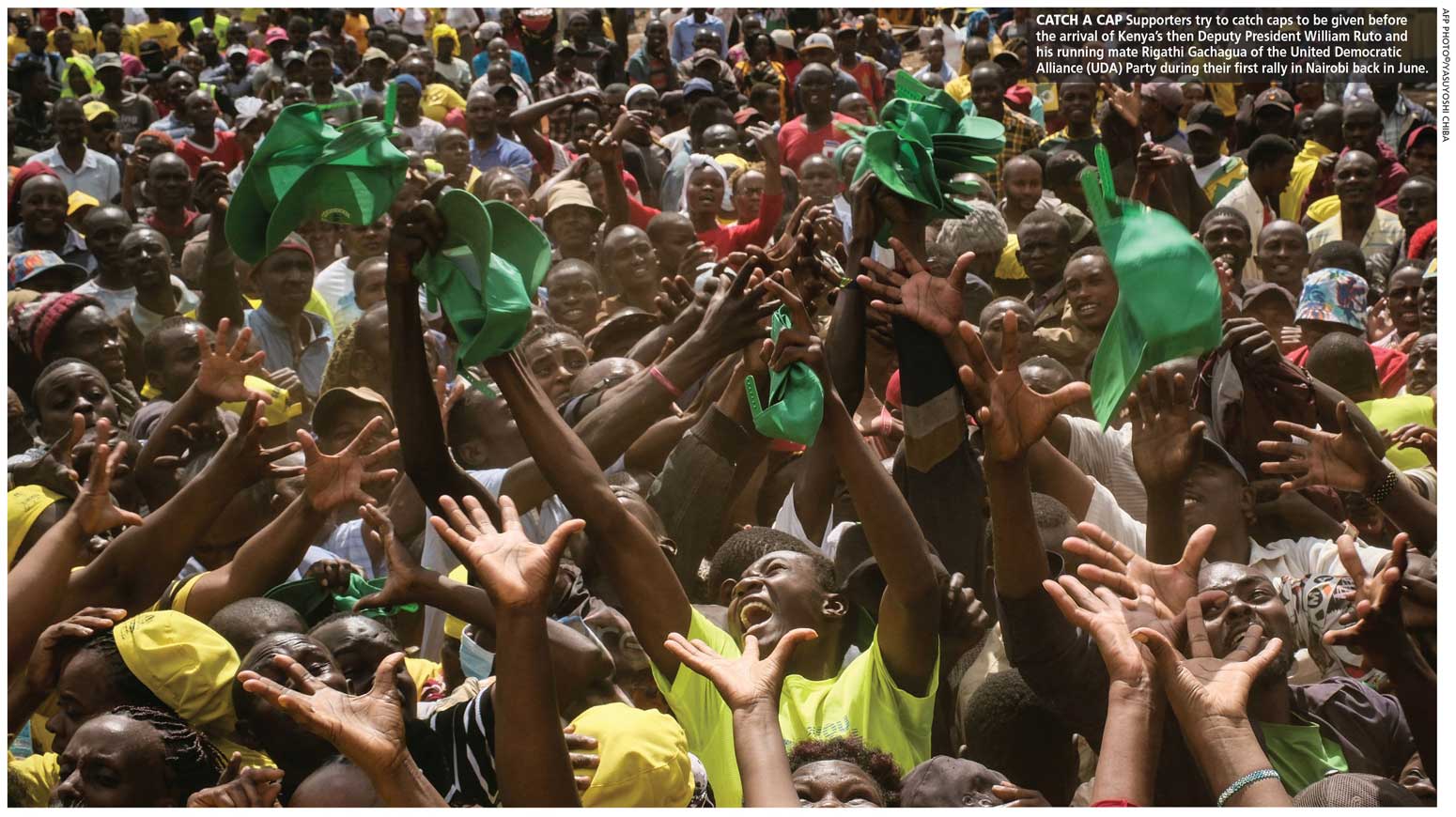THE RULE OF LAW
KENYA EMBRACES DEMOCRACY
Rajika Jayatilake observes that a new constitution based on the rule of law has made Kenya a stronger democracy
The rule of law ultimately defines civilised society. When the President of Kenya Uhuru Kenyatta was sworn into office for the second and final time in 2017, he told his people that “however serious our grievances, the law must reign supreme.”
“That law should be the refuge for every Kenyan. None of us should break outside the law or constitutional order, whatever our grievances or protestations,” he added.
Kenya is facing general elections this year and Kenyans are hoping for a fair vote. This will be the second consecutive peaceful transfer of power after the new constitution was introduced in 2010.
Since then, democratic norms have matured in Kenya to the extent of making it one of Africa’s strongest democracies. The country’s National Cohesion and Integration Commission (NCIC) has found that “Kenyans still have a strong desire to have a peaceful election.”
Both presidential candidates – Raila Odinga and Deputy President William Ruto – are critical of political violence. Ruto says political violence is divisive and tears down democracy. This is a completely new perspective and a break from when candidates manipulated conflicts among rival groups for political gain.
Apart from this, Kenya’s Supreme Court has also helped in no small measure to build respect for the rule of law through its fearless and unbiased handling of high profile cases. The display of judicial independence through its historic ruling on the presidential election on 1 September 2017 was the beginning of this sublime trend.
In 2017, that court boldly annulled the presidential election because of voting irregularities. It also ordered a fresh election to be held in 60 days to determine who would lead the country.
And the court once again took the high ground in March this year by throwing out a constitutional amendment proposed by the outgoing president – Kenyatta himself – that aimed to keep him in power through a new position. This would have allowed Kenyatta the opportunity to mould the country’s political domain in the lead up to the election later this year to elect his successor.
Chief Justice Martha Koome said: “I endorse the findings of the two superior courts that the president ought not to be a player and an umpire in the amendment process.”
Prior to the court’s decision, the High Court and Court of Appeal had thrown out Kenyatta’s amendment as “unconstitutional” based on Kenya’s law, which prohibits a sitting president from initiating and advocating constitutional amendments. Snubbing the Kenyatta regime, the Court of Appeal remarked that “the days of an unaccountable presidency are long gone” in Kenya.
This undaunted decision by Kenya’s Supreme Court is expected to strengthen presidential contender Ruto’s hand. He launched his campaign against Kenyatta’s initiative as a waste of public resources in a country beset by mounting debt, poverty and a withering drought.
In the past several years, the courts have gradually become a formidable counter force to an autocratic president and accused him of flouting their decisions.
Uhuru Kenyatta is the country’s fourth president since independence from Britain in 1963. He is the son of Kenya’s founding father and first president Jomo Kenyatta, who was in power for 15 years until his passing in 1978. The younger Kenyatta himself has been president for 10 years and cannot run again.
If the Supreme Court had ruled in favour of Kenyatta, the amendments he was trying to introduce would have bestowed wider powers on the executive and added new positions for a prime minister, two deputies and an opposition leader. It would have also added 70 new constituencies to the already inflated 349 parliamentary seats.
This project – known as the ‘Building Bridges Initiative’ – focussed on introducing reforms to end the winner-takes-all political system.
From the inception however, legal and civil society leaders had widely criticised the reforms, stating that the already debt ridden country couldn’t sustain a larger legislature and executive. Moreover, Kenyatta’s move appeared to be a strategy to dilute the 2010 constitution that had set Kenya on a progressive new path.
In fact, the new constitution was effectively enabling a democratic governance system, subjecting the presidency to a higher degree of checks and balances, and strengthening parliament’s oversight of the presidency.
It introduced for the first time in Kenya a meaningful decentralisation of authority on 47 elected county governments and put in place protection for the rights of individuals, particularly women and vulnerable groups. Besides, parliamentary oversight of an all-powerful presidency, as well as separation of powers of the executive and judiciary, has led to a notable reduction in corruption.
Kenya has shown that despite the challenges of civil war, religious extremism and drought, a nation committed to equality and the rule of law can become a thriving democracy.
As former US president Theodore Roosevelt said: “No man is above the law and no man is below it; nor do we ask any man’s permission when we ask him to obey it.”
“No man is above the law and no man is below it; nor do we ask any man’s permission when we ask him to obey it
Theodore Roosevelt
Former President of the United States







Leave a comment